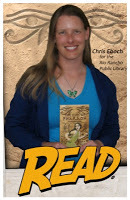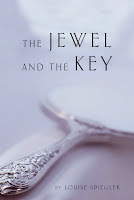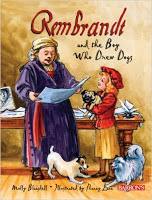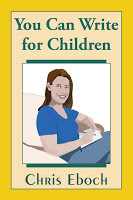Writing In No Time – Meeting Your New Year’s #Resolution
 At our local SCBWI meeting this week, we discussed our writing goals – successes from last year, and goals for 2016. Since one of the big challenges is finding the time to make things happen, I wanted to reprint this article (originally from Children’s Writer).
At our local SCBWI meeting this week, we discussed our writing goals – successes from last year, and goals for 2016. Since one of the big challenges is finding the time to make things happen, I wanted to reprint this article (originally from Children’s Writer).Writing In No Time – Meeting Your New Year’s #Resolution
So many things demand our time – job, spouse, children, volunteer work, housework. It’s tempting to say, “I’ll write during vacation, or when the kids are back in school, or when the kids leave home, or when I retire ….”
Yet if you want to be a writer, you must find time to write.
Becoming a writer requires commitment. If you don’t take your work seriously, your family and friends certainly won’t either. Let them know how important writing is to you. Insist that writing time is your time, and you must not be disturbed. Carve out a few hours each week. Then close the door and ignore your phone and e-mail, or take your laptop to the library.
 Finding even a few hours may seem hopeless when you have young children. Louise Spiegler, author of The Amethyst Road and The Jewel and the Key, said at that time, “It is impossible for me to write with my kids awake and active. I either tried to get both kids to nap at the same time or I spent my non-existent savings on two hours of babysitting.”
Finding even a few hours may seem hopeless when you have young children. Louise Spiegler, author of The Amethyst Road and The Jewel and the Key, said at that time, “It is impossible for me to write with my kids awake and active. I either tried to get both kids to nap at the same time or I spent my non-existent savings on two hours of babysitting.” Try trading babysitting with other writing parents. Or start a play group/writers group: the kids play, the parents write or critique.
 Molly Blaisdell, author of Rembrandt and the Boy Who Drew Dogs and dozens of other books and mother of four, found another creative way to keep her kids busy when they were little. “I kept all the special toys in my office. When I wanted to work on a scene, I’d pull down that box and say, ‘This is quiet time for special toys.’ It would always be good for about half an hour and sometime would go for two hours.”
Molly Blaisdell, author of Rembrandt and the Boy Who Drew Dogs and dozens of other books and mother of four, found another creative way to keep her kids busy when they were little. “I kept all the special toys in my office. When I wanted to work on a scene, I’d pull down that box and say, ‘This is quiet time for special toys.’ It would always be good for about half an hour and sometime would go for two hours.”Involve older children in your writing activities. Brainstorm story ideas together. Have them draw pictures for your manuscripts. You’ll get more done, and they’ll learn to respect your work. Plus, your time together is research. Claudia Harrington liked driving the carpool for her daughter in middle school, because “the ride home is great for eavesdropping.”
 No Use for a Muse
No Use for a MuseWhen your writing time is limited, you can’t afford to waste a moment. After having a baby, freelance writer Michele Corriel, author of Fairview Felines: A Newspaper Mystery, said, “I still managed to get up before my daughter and cram in even half an hour. The problem with a shorter amount of time is you really have to ‘switch’ it on.”
Successful writers agree: no waiting for the right mood. Spiegler says, “As soon as the kids were asleep or safely dropped off, I would sit down and start working – no waiting for inspiration.”
The most productive writers work anywhere and everywhere. Jean Daigenau said, “I take advantage of the few minutes of downtime I have at school or home – while I’m eating lunch or supervising the homework group at our after-school latchkey program or soaking in the bathtub.”
 If you can’t do serious writing in five-minute bursts, use the time in other ways. Daigenau suggests, “Get it written on the computer and then use those few minutes here and there to revise.”
If you can’t do serious writing in five-minute bursts, use the time in other ways. Daigenau suggests, “Get it written on the computer and then use those few minutes here and there to revise.”Christine Liu Perkins, author of At Home in Her Tomb: Lady Dai and the Ancient Chinese Treasures of Mawangdui, commented, “When I’m constantly being interrupted, chauffeuring, or sitting in waiting rooms, I brainstorm and prewrite. Wherever I am, I focus on a specific problem for that short session. What points do I want to include in this article? What happens next in the story?”
Compromise
The best organized life can sometimes just get too full. Spiegler, who also teaches college now, cautioned against buying into the super-woman myth. “It is almost impossible for me to work at a demanding job and take care of kids and write regularly. The only way I can write is to be teaching something familiar that I can spend less prep time on.”
 You can’t do it all, so decide what’s most important. Then look for areas to cut back. Reduce your work hours, or cut commute time with a job closer to home. Commute by bus and write as you ride. Arrange car pools or play dates for your kids. Dictate into a tape recorder as you walk for exercise. Let the housework slide, and make quick meals. Cut back on email, web surfing or TV.
You can’t do it all, so decide what’s most important. Then look for areas to cut back. Reduce your work hours, or cut commute time with a job closer to home. Commute by bus and write as you ride. Arrange car pools or play dates for your kids. Dictate into a tape recorder as you walk for exercise. Let the housework slide, and make quick meals. Cut back on email, web surfing or TV. Put your family to work as well. Train your kids to do housework and cook one dinner per week – they’ll learn important skills while you get free time!
Don’t let volunteer work take over your life either. Blaisdell commented, “When my volunteer schedule [as regional advisor for SCBWI] burgeoned to 80-hour weeks before conferences, it occurred to me that I could be doing a lot more writing. Yes, I made contacts as a volunteer. I learned stuff from the best writing teachers in the world. Volunteering was a part of paying my dues, but not my lifelong occupation. My time was best spent writing.”
When a real crisis intrudes – sick kids, ailing parents, a job change or divorce – you may need to take time off from writing. Just don’t let it drag on forever. Plan how you’ll handle the crisis, and schedule a time to return to writing. In the meantime, read writing magazines or books for a few minutes each week to keep your focus. Spending even five minutes a day thinking about your writing can make it easier to transition back into writing more, without feeling like you’re starting from scratch.
How about your time? Where does writing fit in your life?
Decide, and make a commitment to your work. Then repeat this mantra: I am a writer, and writers write.
 Chris Eboch writes fiction and nonfiction for all ages, with 30+ traditionally published books for children. Her novels for ages nine and up include The Genie’s Gift, a middle eastern fantasy, The Eyes of Pharaoh, a mystery in ancient Egypt; The Well of Sacrifice, a Mayan adventure; and the Haunted series, which starts with The Ghost on the Stairs.
Chris Eboch writes fiction and nonfiction for all ages, with 30+ traditionally published books for children. Her novels for ages nine and up include The Genie’s Gift, a middle eastern fantasy, The Eyes of Pharaoh, a mystery in ancient Egypt; The Well of Sacrifice, a Mayan adventure; and the Haunted series, which starts with The Ghost on the Stairs. Chris’s writing craft books include You Can Write for Children: How to Write Great Stories, Articles, and Books for Kids and Teenagers, and Advanced Plotting. Learn more at www.chriseboch.comor her Amazon page, or check out her writing tips at her Write Like a Pro! blog.
 Chris also writes for adults under the name Kris Bock. “Kris Bock” writes action-packed romantic suspense involving outdoor adventures and Southwestern landscapes. The Mad Monk’s Treasure follows the hunt for a long-lost treasure in the New Mexico desert. In The Dead Man’s Treasure, estranged relatives compete to reach a buried treasure by following a series of complex clues. In Counterfeits, stolen Rembrandt paintings bring danger to a small New Mexico town. Whispers in the Dark features archaeology and intrigue among ancient Southwest ruins. What We Found is a mystery with strong romantic elements about a young woman who finds a murder victim in the woods. Read excerpts at www.krisbock.com or visit her Amazon page. Sign up for Kris Bock newsletter for announcements of new books, sales, and more.
Chris also writes for adults under the name Kris Bock. “Kris Bock” writes action-packed romantic suspense involving outdoor adventures and Southwestern landscapes. The Mad Monk’s Treasure follows the hunt for a long-lost treasure in the New Mexico desert. In The Dead Man’s Treasure, estranged relatives compete to reach a buried treasure by following a series of complex clues. In Counterfeits, stolen Rembrandt paintings bring danger to a small New Mexico town. Whispers in the Dark features archaeology and intrigue among ancient Southwest ruins. What We Found is a mystery with strong romantic elements about a young woman who finds a murder victim in the woods. Read excerpts at www.krisbock.com or visit her Amazon page. Sign up for Kris Bock newsletter for announcements of new books, sales, and more.
Published on January 15, 2016 07:19
No comments have been added yet.



